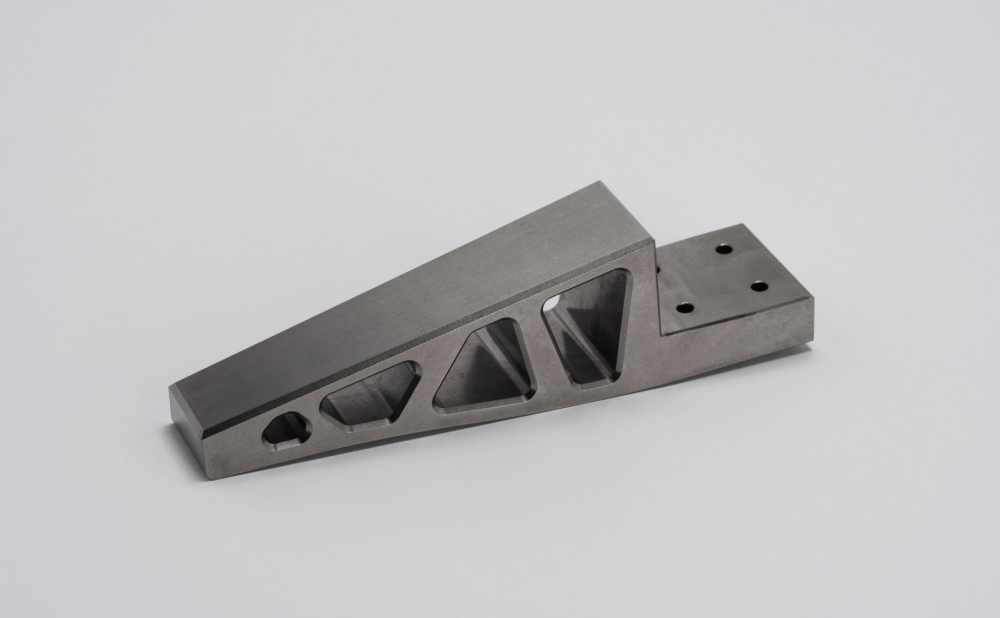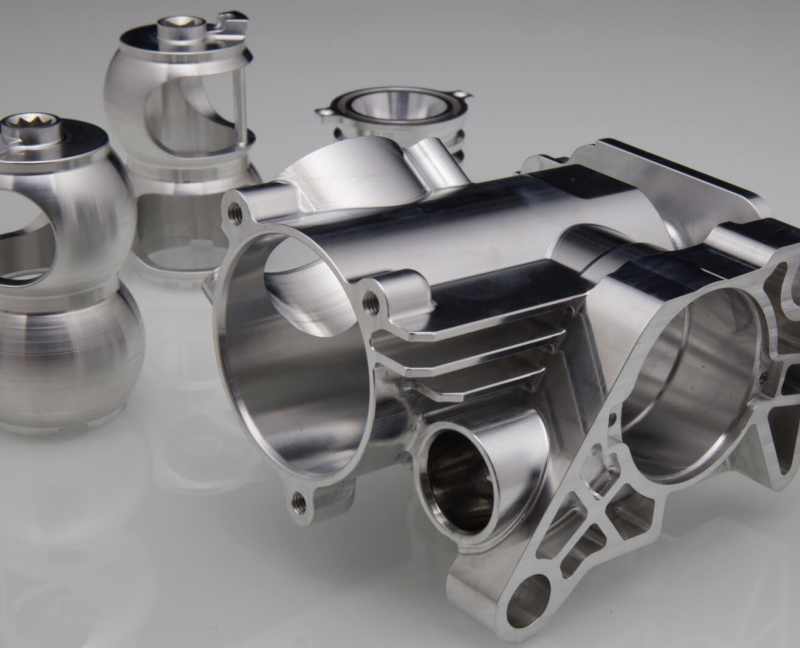Titanium, renowned for its exceptional strength-to-weight ratio and corrosion resistance, is a critical material in industries such as aerospace, chemical processing, marine engineering, and medical device manufacturing. Machining titanium, however, presents unique challenges due to its hardness and low thermal conductivity. This guide explores the intricacies of titanium machining services, including material properties, processing techniques, applications, and the advantages of using CNC machining for titanium parts. With a focus on technical precision and industry applications, the following sections provide a detailed overview of titanium machining.

Properties of Titanium for CNC Machining
Titanium’s unique properties make it a preferred material for high-performance applications. Its physical and chemical characteristics contribute to its versatility and durability, but they also necessitate specialized machining techniques. Below are the key properties of titanium relevant to CNC machining.
Low Density
Titanium has a density of 4.51 g/cm³, which is approximately 50% that of copper and 77% that of low-carbon steel. This low density makes titanium an ideal choice for applications where weight reduction is critical, such as aerospace components and medical implants.
Corrosion Resistance
Titanium forms a protective oxide film when exposed to air, rendering it highly resistant to corrosion, particularly in harsh environments like seawater. This property earns titanium the nickname “marine metal”. It is widely used in industries such as chlor-alkali production, petrochemicals, desalination, and nuclear power plants, where resistance to corrosive substances is essential.
Temperature Performance
Titanium alloys can withstand temperatures up to 600°C or higher, making them suitable for high-temperature environments like jet engines. Additionally, titanium maintains ductility and toughness at cryogenic temperatures ranging from -196°C to -253°C, which is advantageous for applications in the refrigeration industry and space exploration.
Superconductivity
Certain titanium alloys, such as niobium-titanium, exhibit superconductivity, achieving zero electrical resistance below their critical temperature. This property is valuable in applications like power equipment and medical imaging devices, where efficient energy transfer is critical.
Biocompatibility
Titanium is non-toxic and does not cause allergic reactions in the human body, earning it the title “biometal”. This biocompatibility makes titanium a preferred material for medical implants, such as dental implants, joint replacements, and surgical instruments.

Titanium Grades for Machining
Titanium is available in various grades, each with distinct properties tailored to specific applications. The most commonly machined grades for CNC applications are Titanium Grade 1, Grade 2, and Grade 5. Below is an overview of these grades and their characteristics.
Titanium Grade 1
Titanium Grade 1 is a commercially pure titanium with excellent corrosion resistance and high ductility. It has a tensile strength of approximately 240–370 MPa and is easy to form, making it suitable for applications like chemical processing equipment and marine hardware.
Titanium Grade 2
Grade 2 titanium, also commercially pure, offers a balance of strength and formability, with a tensile strength of 340–450 MPa. Its corrosion resistance and weldability make it ideal for industries such as aerospace, medical, and marine engineering.
Titanium Grade 5 (Ti-6Al-4V)
Titanium Grade 5, an alpha-beta alloy, is the most widely used titanium alloy due to its high strength, with a tensile strength of 900–1000 MPa, and excellent corrosion resistance. Its ability to withstand extreme temperatures makes it a staple in aerospace components, such as turbine blades and structural parts.
Titanium Processing Techniques
Titanium machining involves various processing techniques to transform raw titanium into finished parts. These techniques can be broadly categorized into cold processing and hot processing, depending on the temperature at which the material is worked. Additionally, titanium parts can be classified by their form, such as plates, bars, pipes, forgings, and castings.
Cold Processing
Cold processing occurs at or near room temperature, causing plastic deformation in the titanium material. This method is used to produce precise shapes and sizes, such as thin sheets and wires, with minimal thermal stress. Cold processing is common in applications requiring high surface quality, such as medical devices.
Hot Processing
Hot processing involves heating titanium to elevated temperatures to enhance its malleability. This technique is used for forging, rolling, and extruding titanium into complex shapes like bars, pipes, and forgings. Hot processing is prevalent in aerospace and marine engineering, where large, robust components are required.
Common Titanium Product Forms
Titanium machining services produce a variety of product forms to meet industry needs. These include:
- Plates: Thin, flat titanium sheets used in chemical processing and aerospace.
- Bars: Solid titanium rods for structural components and fasteners.
- Pipes: Seamless or welded titanium tubes for fluid transport in marine and chemical industries.
- Forgings: High-strength components for aerospace and automotive applications.
- Castings: Complex shapes for medical and industrial applications.
Applications of Titanium Machining
Titanium’s unique properties make it indispensable in high-end industries. Its high specific strength, corrosion resistance, and biocompatibility enable its use in demanding applications. Below are the primary industries that rely on titanium machining services.
Aerospace
The aerospace industry is the largest consumer of titanium, accounting for a significant portion of global titanium consumption. Titanium’s high strength-to-weight ratio and ability to withstand extreme temperatures make it ideal for components like airframes, turbine blades, and landing gear. For example, Titanium Grade 5 is commonly used in jet engines due to its tensile strength of 900–1000 MPa and thermal stability up to 600°C.
Chemical Industry
In the chemical industry, titanium’s corrosion resistance is critical for equipment exposed to aggressive substances like chlorine and seawater. Titanium is used in heat exchangers, reactors, and piping systems for chlor-alkali production, soda ash manufacturing, and petrochemical processing.
Marine Engineering
Titanium’s resistance to seawater corrosion makes it a preferred material for marine applications, including shipbuilding, desalination plants, and offshore oil platforms. Its density of 4.51 g/cm³ ensures lightweight yet durable components.
Medical Industry
Titanium’s biocompatibility and non-toxicity make it ideal for medical implants, such as hip replacements, dental implants, and surgical tools. Its ability to osseointegrate with human bone enhances its suitability for long-term implants.
Sports and Leisure
Titanium is used in sports equipment, such as golf clubs, bicycle frames, and tennis rackets, due to its lightweight and durable nature. Its aesthetic appeal and corrosion resistance also make it popular in luxury goods like watches and jewelry.

Advantages of CNC Machining for Titanium
CNC machining is a preferred method for producing titanium parts due to its precision, flexibility, and efficiency. Despite titanium’s challenges, such as its hardness and low thermal conductivity, advanced CNC machining techniques overcome these obstacles to deliver high-quality components. Below are the key advantages of CNC machining for titanium.
High Precision and Consistency
CNC machining centers use advanced compensation functions to achieve tight tolerances, often within ±0.005 mm. This precision ensures consistent part quality, which is critical for industries like aerospace and medical manufacturing.
Multi-Process Capability
CNC machining centers can perform multiple operations, including milling, drilling, boring, and tapping, in a single setup. This versatility reduces production time and enhances efficiency, making it ideal for complex titanium parts.
Flexibility and Adaptability
CNC machining offers a high degree of flexibility, allowing manufacturers to produce custom titanium parts with varying geometries and specifications. This adaptability is essential for meeting the diverse needs of industries like aerospace and marine engineering.
Cost and Time Efficiency
By eliminating the need for special fixtures and enabling accurate cost calculations, CNC machining reduces production costs and lead times. The ability to process multiple parts simultaneously further enhances efficiency.
Enhanced Tooling Solutions
Modern CNC machining employs high-hardness tools, such as carbide or diamond-coated tools, to handle titanium’s toughness. These tools ensure precise cutting and extended tool life, meeting the stringent design requirements of titanium components.
Challenges in Titanium Machining
While CNC machining offers significant advantages, titanium’s properties present unique challenges that require specialized techniques and equipment. Below are the primary challenges in titanium machining.
High Hardness
Titanium’s hardness, particularly in alloys like Grade 5, leads to rapid tool wear. Machining titanium requires robust tools and optimized cutting parameters to minimize wear and maintain precision.
Low Thermal Conductivity
Titanium’s low thermal conductivity causes heat to concentrate at the cutting zone, increasing tool wear and potentially damaging the workpiece. Effective cooling systems, such as high-pressure coolant, are essential to dissipate heat during machining.
Work Hardening
Titanium tends to work-harden during machining, increasing its resistance to further cutting. This phenomenon requires careful control of cutting speeds and feeds to prevent surface damage and ensure part quality.

Kesu: Precision CNC Machining for Titanium—Where Strength Meets Perfection
At Kesu, we master the art of titanium machining, turning its unique challenges into your competitive edge. Our advanced CNC centers deliver unrivaled precision (±0.005 mm tolerances) and consistency, even for high-hardness alloys like Grade 5, ensuring every part—from aerospace turbine blades to medical implants—meets the strictest standards. With multi-process capabilities (milling, drilling, tapping, all in one setup), we streamline production, cut lead times, and eliminate extra costs, while our high-hardness carbide tools tackle titanium’s low thermal conductivity and work-hardening tendencies with ease. Whether you need custom forgings, intricate castings, or precision plates, our flexible, adaptive service scales to your needs, from small-batch medical devices to large aerospace components. Trust Kesu to transform titanium’s exceptional properties into parts that redefine performance—stronger, lighter, and built to last.
FAQ: Titanium Machining Services
What are the main grades of titanium used in CNC machining?
The primary grades used in CNC machining are Titanium Grade 1, Grade 2, and Grade 5. Grade 1 and Grade 2 are commercially pure titanium with excellent corrosion resistance, while Grade 5 (Ti-6Al-4V) is a high-strength alloy used in aerospace and medical applications.
Why is titanium difficult to machine?
Titanium’s high hardness, low thermal conductivity, and tendency to work-harden make it challenging to machine. These properties cause rapid tool wear, heat buildup, and surface hardening, requiring specialized tools and techniques.
What industries benefit most from titanium machining?
Aerospace, chemical processing, marine engineering, medical, and sports industries benefit significantly from titanium machining due to the material’s strength, corrosion resistance, and biocompatibility.
How does CNC machining improve titanium part production?
CNC machining enhances titanium part production by offering high precision, multi-process capability, flexibility, and cost efficiency. It ensures consistent quality and meets the stringent requirements of high-end applications.
